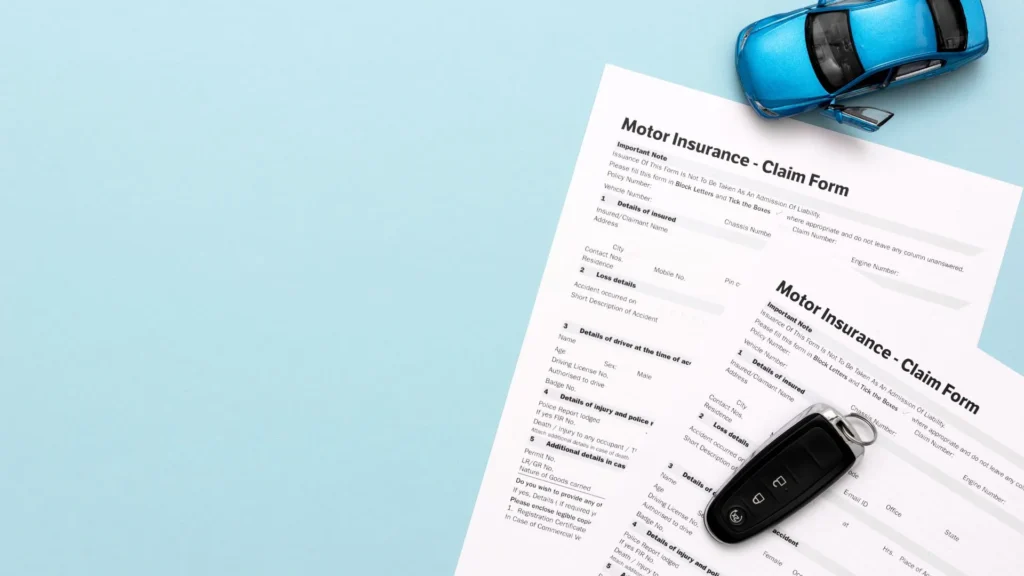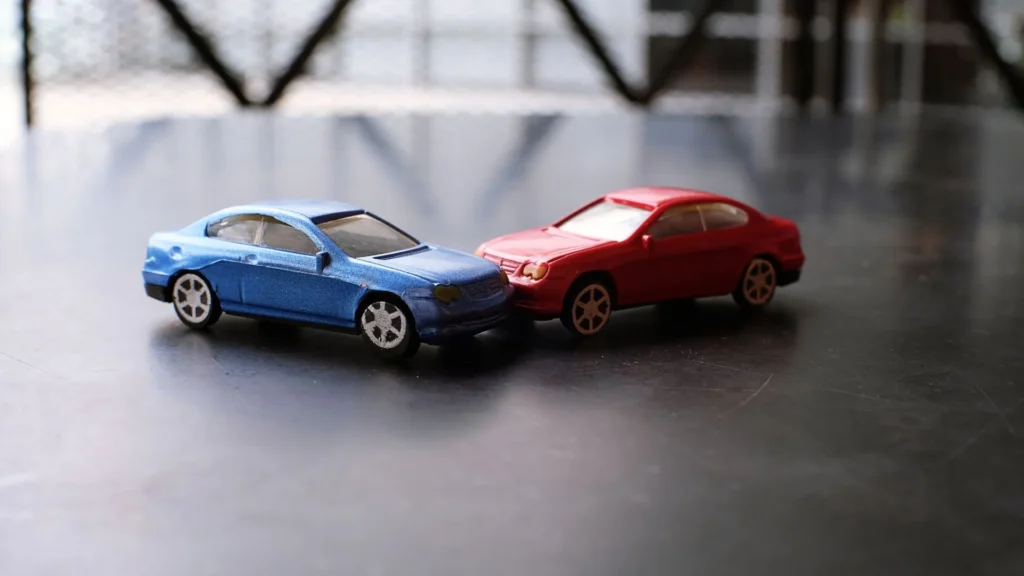Understanding the difference between comprehensive insurance vs collision car insurance is crucial amid the uncertainties in the world of auto insurance. They are not legally required in any state, but they can be helpful in various situations.
In several cases, collision coverage is bundled in conjunction with comprehensive coverage. There is no coverage for bodily harm or damage to anyone else’s property if you have damage to your own car or decide to change it entirely.
Before choosing a car insurance policy, it is advisable to compare quotes from different providers. Use Beem to find the best insurance quotes and get up to 40% on your preferred coverage.
What’s the Difference Between Comprehensive vs Collision Insurance?
Comprehensive insurance differs from collision insurance in that it covers different situations. Collision insurance covers damage to your vehicle if it collides with another vehicle or object.
In contrast, comprehensive coverage covers theft or damage caused by disasters, such as fires or terrible weather. You may need to buy collision and comprehensive policies together, or they may let you buy them separately.
| Feature | Comprehensive Coverage | Collision Coverage |
| What’s Covered | Damage to your vehicle that is not caused by a collision, such as theft. Disasters caused by nature Damage caused by animals | Having a collision with another vehicle Fencing, for example, can cause a collision Accidents involving a single-vehicle |
| Deductible | Yes | Yes |
| Coverage Limit | Actual cash value | Actual cash value |
| Required or Optional? | Leasing or financing a vehicle requires this information. Otherwise, it is optional. | Leasing or financing a vehicle requires this information. Otherwise, it is optional. |
| What’s Not Covered | Damage to another person’s vehicle Medical bills (yours, your passengers, other drivers) | Damage to another person’s vehicle Medical bills (yours, your passengers and other drivers) |
Why Get Comprehensive Insurance?
In a nutshell, accidents happen. Whatever precautions you take behind the wheel, you can’t always control what happens to your vehicle. A strong storm can hit out of nowhere when you have to park outside.
You may be driving along a dark rural road when a deer jumps into your vehicle. By purchasing comprehensive auto insurance, you can prepare for these things even though you cannot control them.
A comprehensive coverage plan:
- Is applicable regardless of who is at fault.
- Provides repair coverage above your deductible, so you don’t have to foot the entire bill.
- In most cases, it is required along with collision coverage. As a result, their interest in the vehicle is protected.

Why Get Collision Insurance?
Even though you may not need to maintain a collision insurance policy by law, there are some circumstances when it may be helpful. After an accident, collision insurance can shield you from expensive repairs or replacements.
If another driver causes the accident, their insurance may not cover the entire expense of your vehicle’s damage so collision insurance may cover it.
While driving, you can’t control the surroundings even with a calm and composed demeanor. Regardless of how careful a driver is, they can be involved in an accident.
Therefore, every driver should have collision insurance. Your collision insurance will pay for repairing or, if required, replacing your vehicle if you were in an accident with someone without insurance.
The policy is usually recommended for newer and more expensive cars with annual premiums of 10% of the car’s value. In case of an accident, car insurance will only cover expenses to fix the damage to the other driver’s vehicle; your liability insurance will not cover it.
However, the cost of your car repairs will be incurred by you if you don’t have collision insurance.
What Does Comprehensive and Collision Insurance Cover?
Neither collision nor comprehensive insurance covers damage to another person’s vehicle or property, such as their home or fence. Aside from that, collision and comprehensive coverage cover no medical expenses.
The at-fault driver’s liability insurance covers accident victims’ injuries and property damage. MedPay or personal injury protection must be used by the at-fault driver to cover their medical expenses.
We can better understand what comprehensive and collision insurance covers if we look at two examples:
Example 1 – Comprehensive Coverage
Suppose you’re driving along a rural road when you notice a deer warning sign. Then, sure enough, the car is hit by a deer.
Your comprehensive car insurancepolicy will cover damage to your car since your actions did not cause the collision.
Example 2 – Collision Coverage
Imagine the same road and the same deer, except this time; the deer caused an accident between two cars instead of escaping.
You are following too closely to stop in time, so you rear-ended the car in front of you and slammed on his brakes to avoid the deer. In this case, you will likely be covered by collision coverage if your car needs to be repaired.
| Cause of Damage | Comprehensive | Collision |
| Theft | Covered | Not Covered |
| Falling objects | Covered | Not Covered |
| Fire | Covered | Not Covered |
| Natural disaster | Covered | Not Covered |
| Animals | Covered | Not Covered |
| Vandalism | Covered | Not Covered |
| Collision with another vehicle | Not Covered | Covered |
| Collision with a stationary object | Not Covered | Covered |
| Single-car accident | Not Covered | Covered |
Is Collision and Comprehensive Insurance Required?
Your lender or leasing company may need you to purchase collision and comprehensive insurance for your car if you have a loan or lease on it.
You cannot terminate the contract if your car is totaled or stolen. After you have paid off your car loan, collision, and comprehensive insurance will no longer be required.
The purchase of collision and comprehensive may still be worthwhile even if you are not required to do so. Can you pay for repairs or purchase another car if your car is damaged or stolen? There is some financial protection offered by collision and comprehensive if the answer to this question is no.
You may find collision and comprehensive coverage less valuable if you own an older vehicle. You can expect your maximum payout to decrease if your vehicle is totaled or stolen, especially if your deductible is high.
Think about owning a Honda Accord 2005 worth $3,300. Your insurance check will be $2,300 if you total your car in a flood and have a $1,000 deductible. It is up to you to determine whether the price you pay for collision and comprehensive over several years is worth the potential benefit it could bring.
National Association of Insurance Commissioners data suggests an average collision claim costs $4,412.31. A comprehensive claim costs $1,359.04.
The Maximum Insurance Payout
Collision and comprehensive policies have a maximum payout based on the actual market value of the vehicle, less the deductible amount. Totaled cars include those that have been damaged in the following ways:
- There is no other way to fix it so it can be driven safely.
- The fixing expenses than the car is worth.
- Spending more than a certain percentage of the car’s value on repairs would be imperative. Cars are considered totaled in many states when their repair costs exceed 75% of their value.
- New cars are more accessible to total than older ones, so don’t assume they’ll be more complicated. New cars are more likely to be totaled in an accident because the technology is so expensive to repair.

Price Details of the Collision and Comprehensive Insurance
Our analysis compared minimum-coverage rates with comprehensive, collision, and higher liability limits to get a realistic comparison. In most cases, these three types of coverage are called full coverage auto insurance.
Here are the costs for drivers holding good credit and zero recent traffic violations or accidents at the five largest auto insurance companies in the US.
| Company | Full coverage | Minimum required coverage | Annual difference |
| Allstate | $1,994 | $648 | $1,346 |
| Geico | $1,233 | $370 | $863 |
| Progressive | $1,739 | $625 | $1,114 |
| State Farm | $1,381 | $473 | $908 |
| USAA* | $1,238 | $396 | $842 |
| Members of the military, veterans, and their families are the only ones eligible for USAA. | |||
State-wise Rates for Full Coverage vs Minimum Coverage
There is wide variation in rates for similar policies between states, and an additional comprehensive or collision policy can cost more in some places than others.
Based on a driver with good credit and no recent tickets or accidents, here are the average cost differences between minimum and whole coverage policies in each state. In addition to your car’s value, location, driving history, and deductible amount, your rate will be determined by these factors.
| State | Full coverage | Minimum coverage | Annual difference |
| National | $1,630 | $561 | $1,069 |
| Alabama | $1,735 | $575 | $1,160 |
| Alaska | $1,344 | $418 | $926 |
| Arizona | $1,669 | $588 | $1,081 |
| Arkansas | $1,920 | $507 | $1,413 |
| California | $2,005 | $629 | $1,376 |
| Colorado | $1,950 | $512 | $1,438 |
| Connecticut | $1,785 | $884 | $901 |
| Delaware | $2,138 | $969 | $1,169 |
| Florida | $2,780 | $1,084 | $1,696 |
| Georgia | $1,715 | $719 | $996 |
| Hawaii | $1,188 | $391 | $797 |
| Idaho | $1,050 | $338 | $712 |
| Illinois | $1,383 | $512 | $871 |
| Indiana | $1,153 | $354 | $799 |
| Iowa | $1,131 | $240 | $891 |
| Kansas | $1,840 | $482 | $1,358 |
| Kentucky | $2,488 | $911 | $1,577 |
| Louisiana | $3,094 | $957 | $2,137 |
| Maine | $1,102 | $374 | $728 |
| Maryland | $2,062 | $945 | $1,117 |
| Massachusetts | $1,169 | $459 | $710 |
| Michigan | $2,125 | $913 | $1,212 |
| Minnesota | $1,463 | $548 | $915 |
| Mississippi | $1,900 | $575 | $1,325 |
| Missouri | $1,760 | $537 | $1,223 |
| Montana | $2,008 | $460 | $1,548 |
| Nebraska | $1,424 | $349 | $1,075 |
| Nevada | $2,581 | $1,002 | $1,579 |
| New Hampshire | $1,277 | $443 | $834 |
| New Jersey | $1,971 | $973 | $998 |
| New Mexico | $1,505 | $413 | $1,092 |
| New York | $2,020 | $941 | $1,079 |
| North Carolina | $1,255 | $402 | $853 |
| North Dakota | $1,302 | $368 | $934 |
| Ohio | $1,098 | $391 | $707 |
| Oklahoma | $1,965 | $472 | $1,493 |
| Oregon | $1,383 | $681 | $702 |
| Pennsylvania | $1,535 | $458 | $1,077 |
| Rhode Island | $2,149 | $866 | $1,283 |
| South Carolina | $1,611 | $601 | $1,010 |
| South Dakota | $1,502 | $311 | $1,191 |
| Tennessee | $1,439 | $407 | $1,032 |
| Texas | $1,749 | $611 | $1,138 |
| Utah | $1,655 | $667 | $988 |
| Vermont | $1,108 | $353 | $755 |
| Virginia | $1,460 | $533 | $927 |
| Washington | $1,317 | $472 | $845 |
| Washington, D.C. | $1,993 | $758 | $1,235 |
| West Virginia | $1,622 | $512 | $1,110 |
| Wisconsin | $1,271 | $374 | $897 |
| Wyoming | $1,484 | $336 | $1,148 |
What Does Collision and Comprehensive Insurance Don’t Cover?
A policy called comprehensive car insurance would cover most of the basics. Comprehensive insurance only covers some things. There are some things that comprehensive car insurance won’t cover:
- Damage suffered by your vehicle during a collision.
- Other vehicles are damaged.
- The property has been damaged.
- The cost of medical care.
- In your vehicle, you will find the following items. However, the contents of these belongings are usually covered by renter’s or homeowner’s insurance.
- Wear-and-tear damage is another type of damage to your vehicle that isn’t covered by comprehensive or collision insurance.
Conclusion
It’s imperative to ponder whether you want extra protection for yourself and your vehicle when buying comprehensive or collision insurance. You will not be shielded if you file a liability claim for your car or those of other parties, except their vehicles and injuries.
Comprehensive and collision insurance will cover you in unfortunate events, including accidents, natural disasters, theft, or vandalism.
Choosing comprehensive insurance vs collision insurance is essential when purchasing a new or upgrading an existing policy. A comparison of rates from multiple providers using Beem is the best way to find the lowest premiums.





























